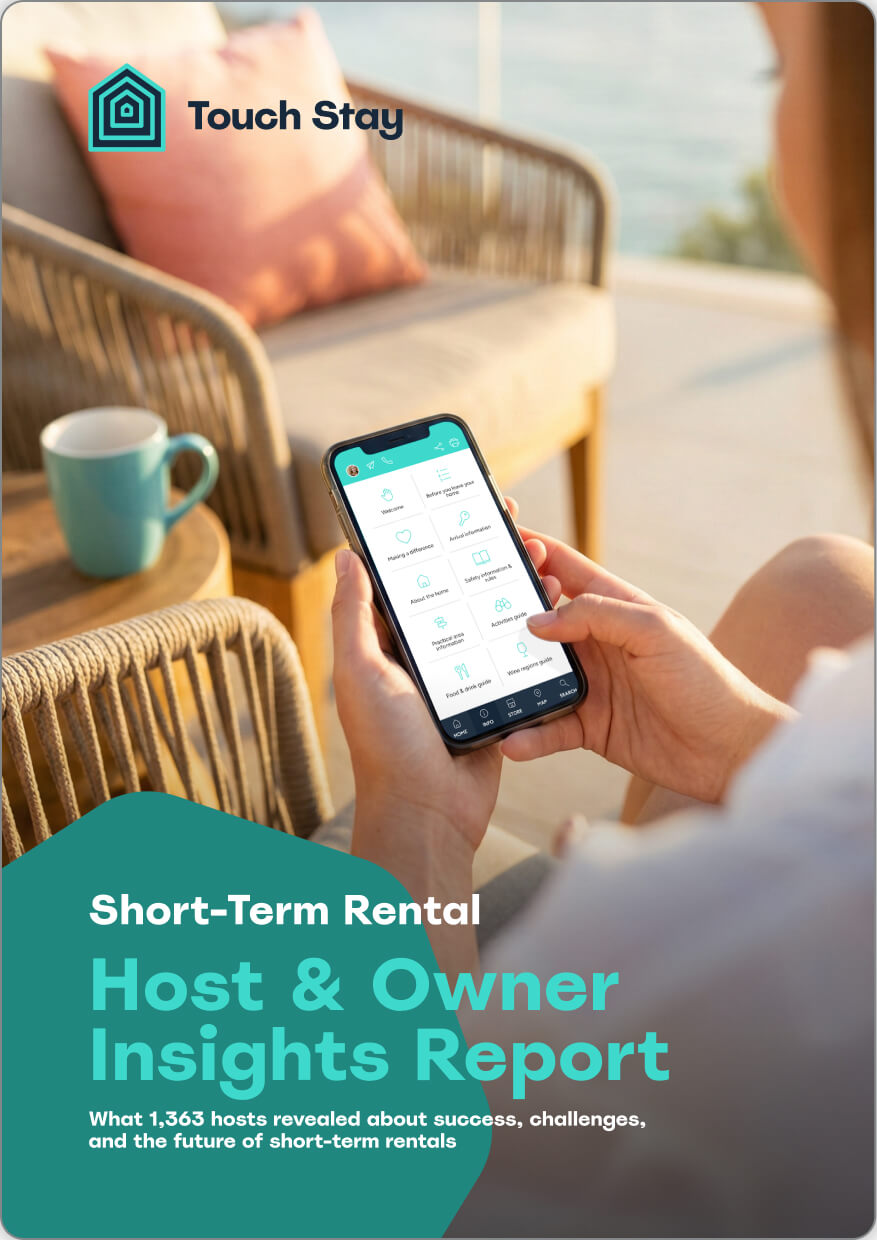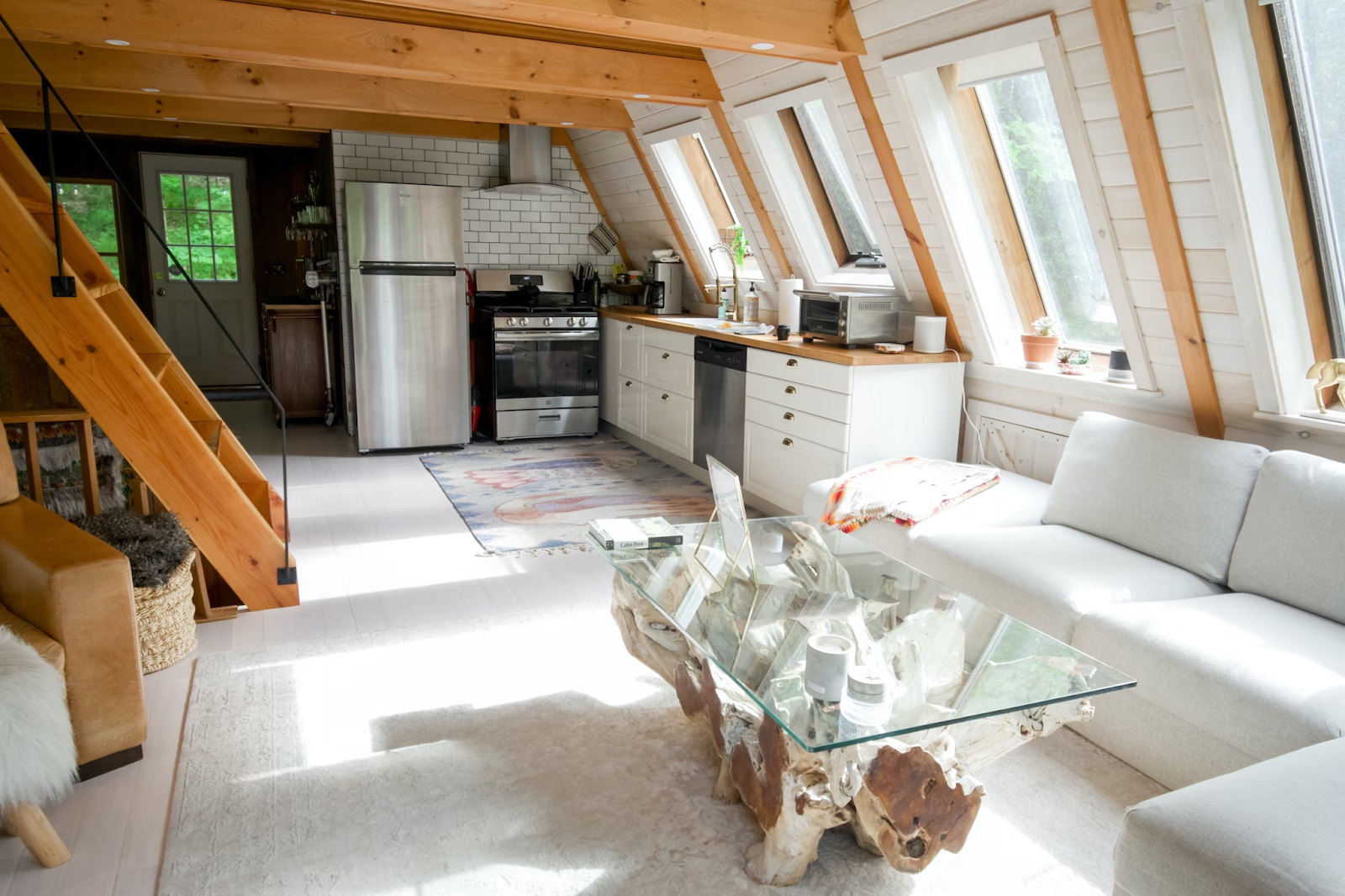When booking a vacation rental online, most people follow a similar routine: a quick scan of the photos, scout out the location, check it has all the desired amenities, and then head straight for the reviews.
Whether it’s on Airbnb, Tripadvisor, or anywhere else, vacation rental reviews can hold a lot of sway over future guests. An abundance of good reviews can convince someone unsure, while bad reviews can deter guests in droves.
You can’t control the content of every review, but the way you manage them can make a big difference. The tips below will help you to get the most out of your vacation rental reviews.
10 tips for managing your vacation rental reviews
1. Respond to every review
Good, bad, or lukewarm, it’s important to respond to every rental review that comes in. Recording all customer feedback is important to track how you’re doing and can be used in customer intelligence analytics to get a better understanding of your customers and what can be improved.
Bear in mind that potential guests can see your responses as well, and the mere fact that you have taken the time to engage with every review speaks volumes.
Make sure the tone you adopt in your responses is consistent and friendly. Try to personalise each one to the guest, as repeatedly posting the same response can appear as lazy. The most important thing that should come across is that you care about your guests and the quality of their stay.
2. Use automation tools
Using the right rental tech can help you build an efficient short-term rental business and handle reviews effectively. Choose a solution that will notify you of reviews on various platforms and allow you to manage all of them in one place.
This streamlines review management, so you don’t have to keep switching between different websites and apps to keep on top of everything.
These tools can also provide templates for different kinds of review responses that you can then tailor to the specific post, which saves time but still maintains a personal touch. Automation software helps you keep on top of guests' reviews so you can deal with them in a timely manner.
3. Strategic timing
There is an art to the timing of review posts. Some websites, such as Airbnb, have just a 14-day window in which you can post a review. When you have only good things to say about a guest, and you’re expecting them to respond in kind, then it’s good to post your review as soon as possible.
If, however, you had difficulty with a guest and you know that a bad review is likely to elicit some negative comments, you might want to hold off on posting. Waiting till the review window has nearly closed means that a guest may not see a review in time to post any bad comments themselves.
This tactic should really only be used in an instance where you believe the service and experience you have provided is up to standard and that the issue lies in the guest’s behaviour. Otherwise, issues with a guest’s experience should be resolved with them directly.
4. Focus on guest experience
One of the best ways to proactively manage your reviews is to put every effort into giving your guests the best stay possible. Go the extra mile, add tailored details, and communicate clearly and quickly.
If you are managing a large number of properties and a team, make sure the service remains as personalised as possible and take care that someone is always on hand to help, even during busy periods. Tools like virtual contact center solutions can aid in dealing with a large number of enquiries through multiple different channels.
5. Ask for feedback during guest stays
Actively encourage guests to communicate with you about their experience during their stay. This shows that you genuinely care about their comfort and enjoyment and increases the chance that they will leave a good review.
It also means that if there are any problems or issues, no matter how big or small, they’ll let you know so you can deal with them promptly. In most cases, this will prevent them from feeling the need to leave negative feedback, as you have already managed the situation.
6. Optimise positive review responses
When you get positive reviews, nurture the relationships further by showing how much it means to you. Respond with sincere gratitude and thank them for taking the time to leave their feedback.
Highlight specific parts of their review that mention the aspects of their stay that they enjoyed. This shows you have paid close attention to their review and that you care about their experience.
Finish by expressing the hope that they will come back and stay another time to encourage valuable repeat bookings.
7. Handle negative reviews with professionalism
You might have gone above and beyond with creative ways to wow your guests and made every effort to make their stay as smooth as possible. However, things can always go wrong, and you may encounter bad reviews, whether it’s your fault or not.
When this happens, take a professional approach and focus on solutions. Even though you might not like their feedback, still thank them for sharing their experience. Communicate ways you would like to resolve their solution publicly and encourage them to continue the conversation in private.
Avoid becoming defensive or accusatory. Remember, future guests' opinions of your service will be shaped by the way you respond to this criticism. If they see that you are respectful, helpful, and care about fixing problems, they may well overlook a bad review or two.
8. Refrain from reviewing guests
On rare occasions, one of the best ways to avoid bad reviews is to hold off from posting guest reviews. If you are aware that a guest has had issues with their stay and you are anticipating negative feedback, you don’t want to encourage them to review. Of course, it’s important to try to rectify any issues both during and after their stay.
As guests have to leave their own reviews to see what you have written about them, it is best to refrain from saying anything at all in this instance. There’s a greater chance then that they just leave it be, and you won’t have to deal with the bad review at all.
9. Learn from feedback
Look at every review as an opportunity. You will learn what people love about your property and service, which can help you tweak your listings and accentuate the best aspects of each rental.
Or, if you receive a negative review, act on that feedback. It could be something as simple as buying a can opener or corkscrew for the kitchen, something which is easy and affordable to achieve.
The idea is not to get complacent. Different guests will want different things, and expectations may change over time. Stay committed to constant improvement, and you will see the effort you have made reflected in future reviews.
10. Create a review management action plan
Develop a comprehensive review management action plan using the steps below:
- Assess current reviews: start by evaluating existing reviews. Categorise them into positive and negative segments. Identify recurring themes or common feedback points in negative reviews. Use this analysis to understand strengths and areas for improvement.
- Set review response guidelines: establish protocols for responding to reviews. Specify who within your team will handle review responses. Set response timeframes to ensure prompt replies. Emphasise the need for personalised, empathetic, and professional responses.
- Develop response templates: create response templates for both positive and negative reviews. These templates should serve as a foundation for responses while allowing room for personalisation. Ensure that responses reflect gratitude, acknowledgement, and a proactive approach to problem-solving.
- Implement the right technology: explore automation and artificial intelligence tools available to streamline the review process. For example, contact center AI software can allow you to monitor and transcribe customer calls in real-time while also analysing the sentiment of each one based on the feedback that customers provide.
- Regular review monitoring: emphasise the importance of ongoing review monitoring. Encourage hosts to regularly check reviews across multiple platforms and respond promptly to maintain guest engagement and demonstrate active management.
- Periodically review the action plan: set intervals to review and refine the action plan. Ensure it aligns with evolving guest expectations and property improvements. This periodic review allows hosts to adapt strategies to address emerging review trends effectively.
Make sure your reviews work for you
Good vacation rental review management is about controlling your controllables. Start with a commitment to the highest standard of guest experience so that you have the best chance of receiving good reviews.
Reply to every review, whether positive or negative. Taking advantage of technology solutions that automate some review management will help ensure every review is responded to promptly and nothing gets missed.
Make the most of good reviews by showing your appreciation and strategically placing the best ones on your website or in marketing campaigns. Handle bad reviews with professionalism and grace. Don’t take them personally and demonstrate a public commitment to finding solutions to problems.
Above all else, learn as much as you can from guest feedback and use the information to continually improve your vacation rentals and services. When managed well, guest reviews can serve as a great selling point for your properties and give you an edge in a competitive market.
Discover what great guest reviews can do for your vacation rental with a Touch Stay digital guidebook.

Ned
Ned has clocked up over 11 years in digital marketing and comms, with a strong focus on creating engaging content for a range of brands and agencies. When he’s not writing, he can be found digging for records, peering through his telescope at the night sky, or onboard his local lifeboat where he volunteers as a crewmember.
Be the first to know!
Join our newsletter for early access to:
- ✅ Free guides
- ✅ Pro tips & tricks
- ✅ Time saving tutorials
- ✅ Latest blog posts
- ✅ Checklists & templates


























.webp?width=50)
%20and%20how%20to%20calculate%20it.webp?width=50)